News

Cristiano Ronaldo will not retire until he scores 1,000 goals
Portugal captain Cristiano Ronaldo says he will not end his playing career until he scores his 1,000th career goal.
The 40-year-old scored twice in Al-Nassr’s 3-0 win against Al Akhdoud on Saturday to take his tally for club and country to 956 goals.
The forward, who joined Al-Nassr in 2022, signed a new two-year deal with the Saudi Arabian club last July that takes him beyond his 42nd birthday.
Speaking after being named the Best Middle East Player at the Globe Soccer Awards in Dubai on Sunday, Ronaldo said: "It’s hard to continue playing, but I am motivated.
"My passion is high and I want to continue. It doesn’t matter where I play, whether in the Middle East or Europe. I always enjoy playing football and I want to keep going.
"You know what my goal is. I want to win trophies and I want to reach that number [1,000 goals] that you all know. I will reach the number for sure, if no injuries."
In an interview with Piers Morgan last month, external, Ronaldo said he planned to retire from football "soon".
"I think I will be prepared. It will be tough, of course. I will probably cry," said Ronaldo.
Ronaldo has scored 13 goals in 14 appearances this season for Al-Nassr, who are four points clear at the top of the Saudi Pro League table.
Despite the forward’s record of 112 goals in 125 appearances, Al-Nassr have only won one piece of silverware - the Arab Club Champions Cup in 2023 - since his arrival.
Ronaldo holds the record for most goals for Portugal (143) and Real Madrid (450), and is the only player to have scored 100+ goals for four clubs - Manchester United, Real Madrid, Juventus and Al-Nassr.
The striker said in November that the 2026 World Cup in the United States, Canada and Mexico will be his last international tournament.
He captained Portugal as they won Euro 2016 in France - the nation’s first international men’s trophy.
(Source:adaderana.lk)
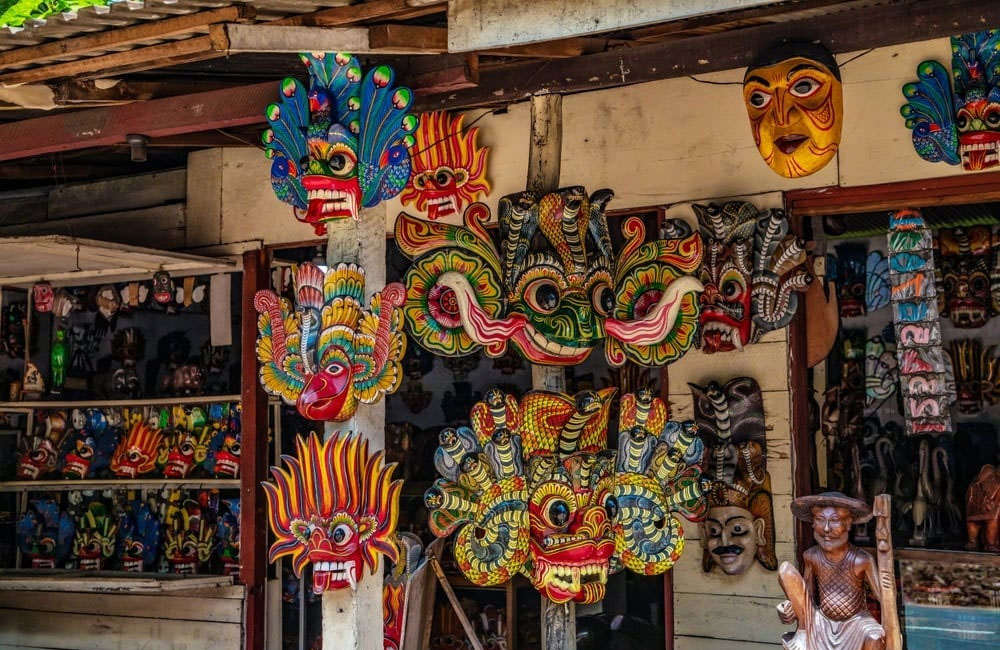
Sector-Specific Committees Aim to Close Longstanding Industry Policy Gaps
The Cabinet’s approval to set up seven new Industry Consultancy Committees reflects a broader shift towards sector-specific policymaking, addressing long-standing gaps that have limited the growth potential of several niche but economically significant industries.
Rather than focusing solely on post-crisis recovery, the initiative aims to correct structural weaknesses that have persisted for years.
Sri Lanka already operates 20 Consultancy Boards across major production industries, but many traditional, creative and service-oriented sectors have remained outside formal advisory frameworks.
Industries such as indigenous medicine, creative crafts, confectionery production and event management often fall between multiple ministries, resulting in fragmented regulation, unclear standards and weak institutional support.
By introducing dedicated committees for these sectors, the Government is attempting to streamline policy coordination and give industry stakeholders a clearer voice. The inclusion of representatives from State agencies, commercial boards, universities and research institutions is particularly significant, as it opens the door for innovation-driven policy rather than reactive regulation.
For example, the indigenous medicine sector has strong export potential but faces challenges related to quality assurance, intellectual property protection and sustainable sourcing of raw materials. A focused consultancy committee can help align health regulations, export standards and research funding, reducing uncertainty for producers and investors alike.
Similarly, the event management sector severely disrupted during recent economic downturns has lacked formal recognition as an industry. This has limited access to finance, training and social security mechanisms. A dedicated advisory body can help define industry standards, professional certification pathways and targeted incentives, supporting long-term formalisation and growth.
Another critical advantage of sector-specific committees is their ability to track emerging market trends. Creative craft industries and confectionery producers, for instance, are increasingly influenced by changing consumer preferences, sustainability requirements and digital marketing channels. Regular consultation with policymakers can ensure that regulations and support schemes evolve in step with these trends rather than lag behind them.
The Cabinet Spokesman Minister Dr. Nalinda Jayatissa has emphasised evidence-based policymaking as a key objective. If implemented effectively, the committees could serve as early-warning systems, identifying bottlenecks before they escalate into sector-wide crises.
This proactive approach is especially important in a volatile economic environment where policy misalignment can quickly erode competitiveness.
Nevertheless, expectations must be managed. Consultancy committees are advisory by nature, and their success will depend on political will, administrative follow-through and transparency. Clear reporting mechanisms and timelines for acting on recommendations will be essential to avoid these bodies becoming symbolic rather than transformative.
Overall, the expansion of the consultancy framework signals recognition that diverse industries require tailored solutions. By closing policy gaps and improving coordination, the new committees have the potential to strengthen industrial governance and support more balanced, inclusive economic growth.
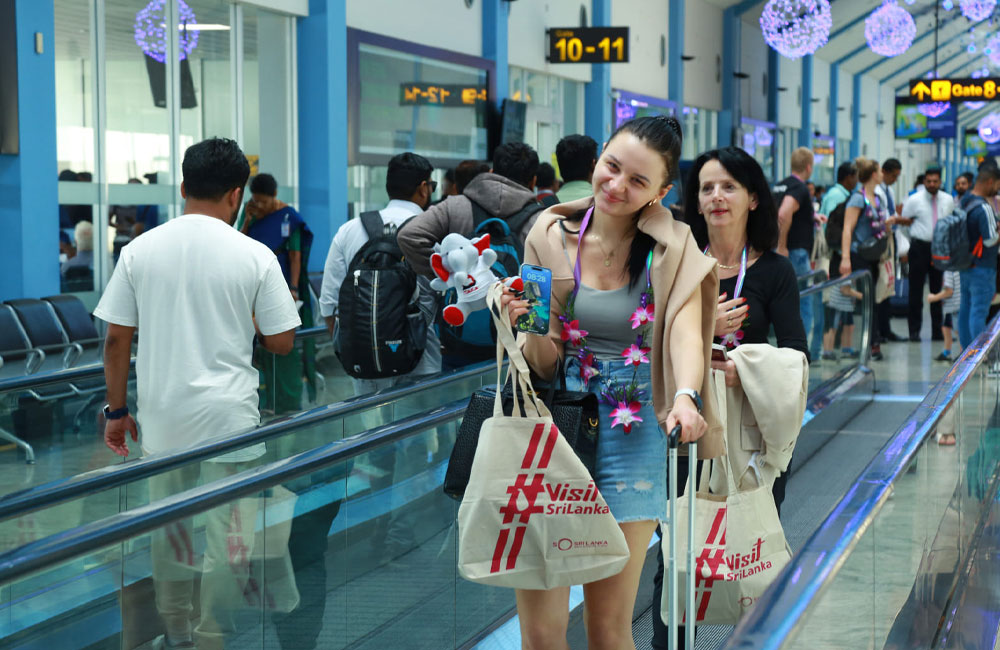
Record-Breaking Tourist Arrival
Sri Lanka has today (29) rewritten its tourism history by recording the highest number of tourist arrivals ever within a single year.
The new milestone was reached as arrivals in 2025 surpassed the previous all-time record of 2,333,796 visitors, which had been set in 2018. With the arrival of the 2,333,797th tourist earlier this morning, a new chapter was officially opened in the country’s tourism journey, according to the Sri Lanka Tourism Authority.
This achievement marks a defining moment for the nation’s travel sector, reflecting Sri Lanka’s resilience and the renewed confidence it commands as a leading global destination.
Tourism continues to stand as a key pillar of the Sri Lankan economy, generating vital foreign exchange earnings, creating employment opportunities, and fostering cultural exchange.
The Tourism Authority further noted that reaching this landmark despite challenges such as the devastation caused by Cyclone Ditwah underscores the strength, unity, and determination of the industry and its stakeholders in steering Sri Lanka forward.

Auto Import Gamble: Short-Term Cash, Long-Term Economic Risk
Sri Lanka’s decision to lift the vehicle import ban in early 2025 under the new NPP government was widely presented as a pragmatic fiscal move a fast way to raise revenue without imposing politically sensitive direct taxes.
While the policy undeniably delivered a short-term windfall, a closer examination suggests the strategy may have shifted economic risk rather than resolved it, raising questions about sustainability, equity, and long-term macroeconomic management.
The government entered 2025 under intense pressure to meet IMF revenue targets, stabilize public finances, and restore economic normalcy after years of crisis.
Vehicle imports offered a tempting solution: high excise duties, import tariffs, VAT, and para-tariffs ensured that every dollar spent on vehicles yielded significant rupee revenue.
Within months, tax collections from vehicle imports surged to unprecedented levels, helping authorities exceed revenue benchmarks and improve headline fiscal indicators.
However, this approach relied on one-off demand rather than recurring economic activity. Pent-up demand from nearly five years of suppressed imports created an artificial boom, pulling future consumption into a narrow time window.
By the second half of 2025, registration data clearly showed the momentum fading a predictable outcome once early buyers exited the market and affordability constraints re-emerged.
The Central Bank’s response highlighted the underlying fragility of the strategy. As foreign exchange demand surged, authorities moved swiftly to tighten lending standards, notably by reducing loan-to-value (LTV) ratios and maintaining high interest rates on vehicle financing.
These actions, while necessary to protect reserves, effectively throttled demand, causing sales to slow sharply across SUVs, hybrids, and electric vehicles by late 2025. The result was a policy contradiction: imports were opened to raise revenue, only to be constrained months later to protect macroeconomic stability.
From a foreign exchange perspective, the risks are more pronounced. Vehicle imports are consumption-oriented and generate no direct export earnings. Every dollar spent represents a permanent outflow, unlike capital goods that expand productive capacity.
While tax revenue boosted rupee inflows to the Treasury, it did little to strengthen the external account. Critics argue that the policy effectively monetized foreign reserves converting scarce dollars into temporary fiscal relief.
Social equity concerns have also emerged. Vehicle taxes are highly regressive in effect: only higher-income households or businesses can afford new or imported vehicles, yet the macroeconomic consequences tighter credit, higher interest rates, and potential currency pressure are borne by the broader population.
Meanwhile, public transport investment and domestic vehicle assembly received comparatively limited policy attention.
Looking ahead to 2026, the limits of this strategy are becoming clearer. With pent-up demand largely exhausted, revenue from vehicle imports is expected to decline sharply.
Without structural tax reforms, export growth, or productivity-enhancing investment, the fiscal gap could re-open, forcing the government back to politically difficult choices.
In hindsight, lifting the vehicle import ban may have been a useful stopgap, but not a substitute for long-term economic reform. The experience underscores a familiar lesson in Sri Lanka’s economic history: short-term fixes can buy time, but they rarely buy stability.
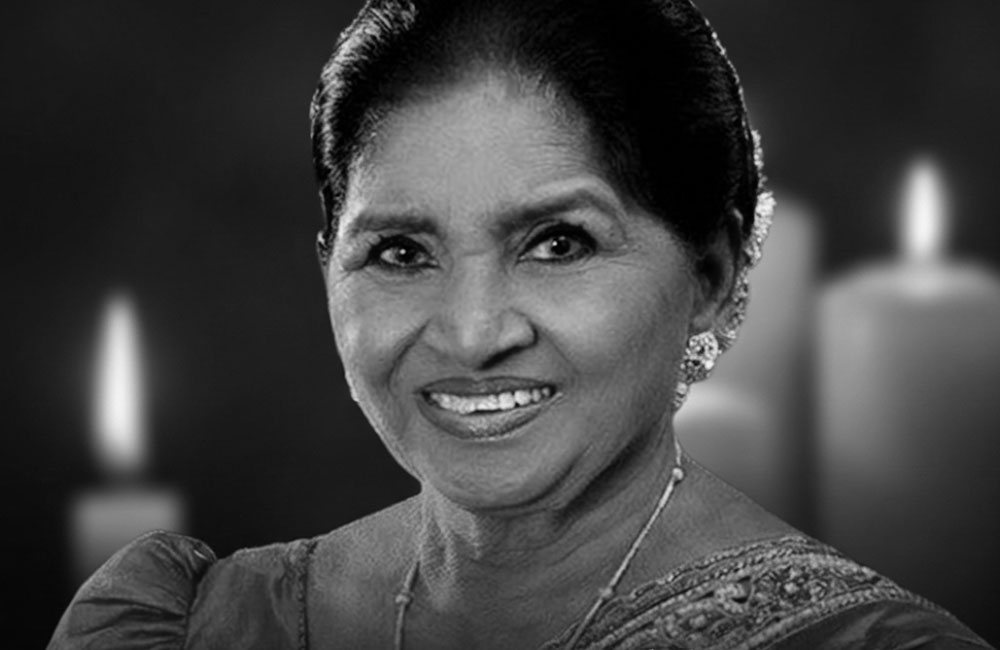
Nation Pays Final Tribute to Latha Walpola
The mortal remains of the late “Songbird of the Nation”, Latha Walpola, have been placed for public viewing once again today (29) at a private funeral parlour in Borella.
Since yesterday afternoon (28), a large number of mourners have been arriving to pay their final respects to the legendary vocalist, whose passing has left a deep void in Sri Lanka’s cultural landscape.
The final rites of Latha Walpola will be conducted with full State honours on Wednesday, the 31st.
The iconic singer passed away last Saturday while receiving treatment at the Sri Jayewardenepura Hospital. She was 91 years old at the time of her demise.
Her body was brought to the Borella funeral parlour yesterday afternoon to allow the public to bid farewell. From 4.00 p.m. onwards, artists, political leaders, and admirers from all walks of life gathered to honour her memory.
Members of the public have been given the opportunity to pay their last respects again today, from 10.00 a.m., as the nation continues to mourn one of its most cherished musical voices.
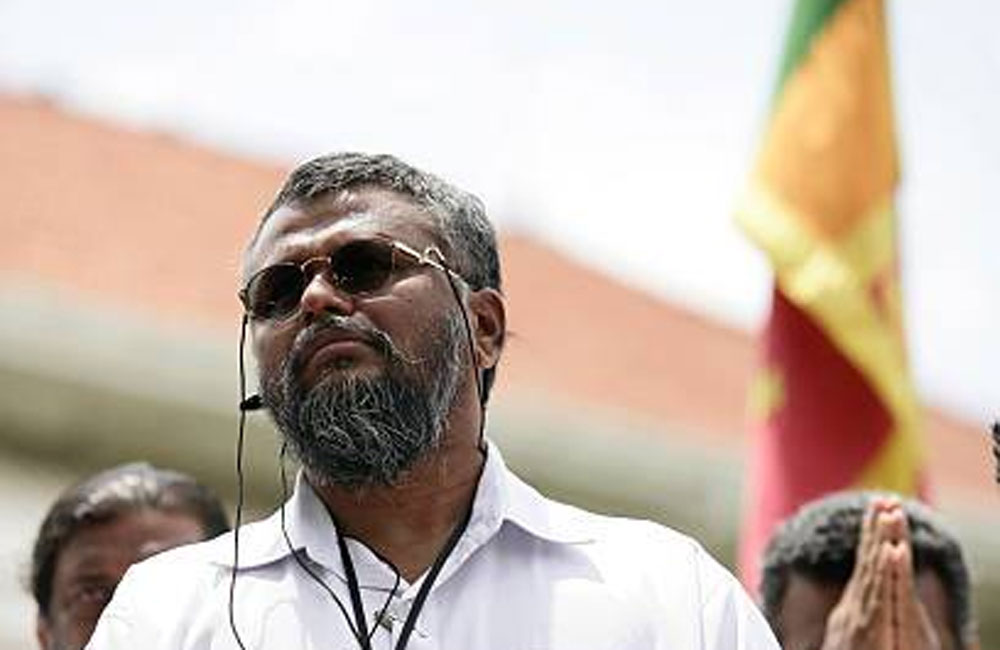
Former Minister Douglas Devananda Remanded Until January 9
Former minister Douglas Devananda has been remanded until January 9.
This was after he was produced before the Gampaha Magistrate's Court.
The former minister was arrested the day before yesterday when he appeared before the Criminal Investigation Department to give a statement regarding an incident in which he allegedly handed over an Army-issued firearm to organized criminal known, Makandure Madush.
The Criminal Investigation Department yesterday took steps to detain and question the arrested former Minister for 72 hours.
The police said that the detentions were obtained under the provisions of the Prevention of Terrorism Act.
The police said that investigations are ongoing regarding 20 firearms issued to former Minister Douglas Devananda.
Among them are fifteen T-56 firearms and five 9 mm firearms.
Investigations are currently underway regarding over 1500 T-56 bullets and over 100 9mm bullets issued to the former minister.
Investigations are underway under the direction of the Criminal Investigation Department.
The police also stated that it has been revealed that the firearms were issued to former Minister Douglas Devananda in 2001. Based on information provided by notorious organized criminal Makandure Madush, a pistol—which was among several firearms issued to Douglas Devananda by the Army in 2001—was discovered near a culvert in Weliweriya in 2019.
Douglas Devananda was arrested following an extensive investigation conducted by the Homicide Investigation Unit of the CID regarding this matter.
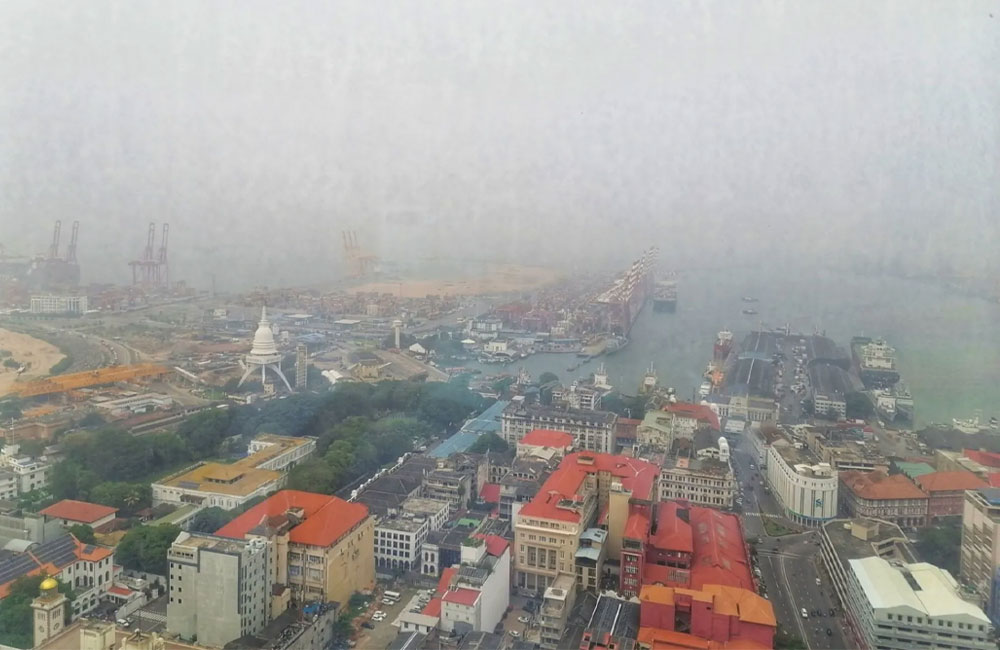
Air Quality Declines in Several Areas Across the Island
Air quality levels have declined across many parts of the country, with several districts including Colombo and Gampaha now recording conditions that are unhealthy for sensitive groups.
Health authorities have cautioned that vulnerable individuals — including young children, pregnant women, the elderly, and people with respiratory conditions — should take special precautions in light of the deteriorating air quality.
Officials have urged these groups to limit exposure and remain alert until conditions improve.
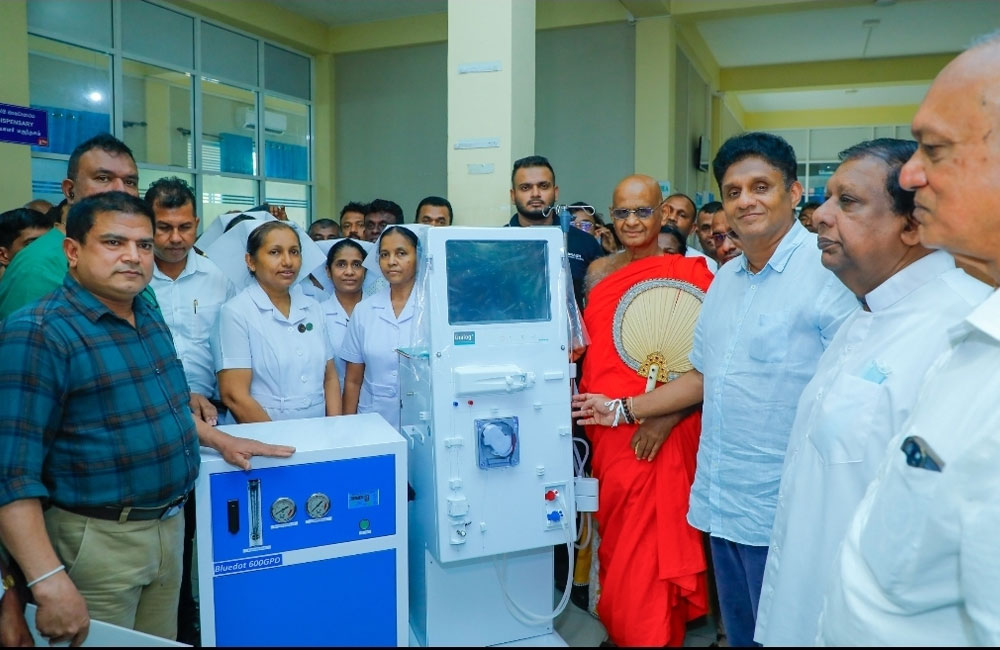
Sajith donates Rs. 4.65 mn medical equipment to Mahiyanganaya Hospital
Opposition Leader Sajith Premadasa on Sunday donated medical equipment worth Rs. 4.65 million to the Mahiyanganaya Base Hospital in the Badulla District under the Samagi Jana Balawegaya’s “Husma” programme.
The donation included a Dialog+ single-pump hemodialysis machine valued at Rs. 3.8 million and a Bluedot RO System 600Gpd water purification unit worth Rs. 760,000. The equipment was provided to strengthen treatment facilities for kidney patients at the hospital.
Addressing the event, Premadasa said access to quality healthcare is a fundamental right and stressed the need to ensure essential medical services are available to patients in regional hospitals.
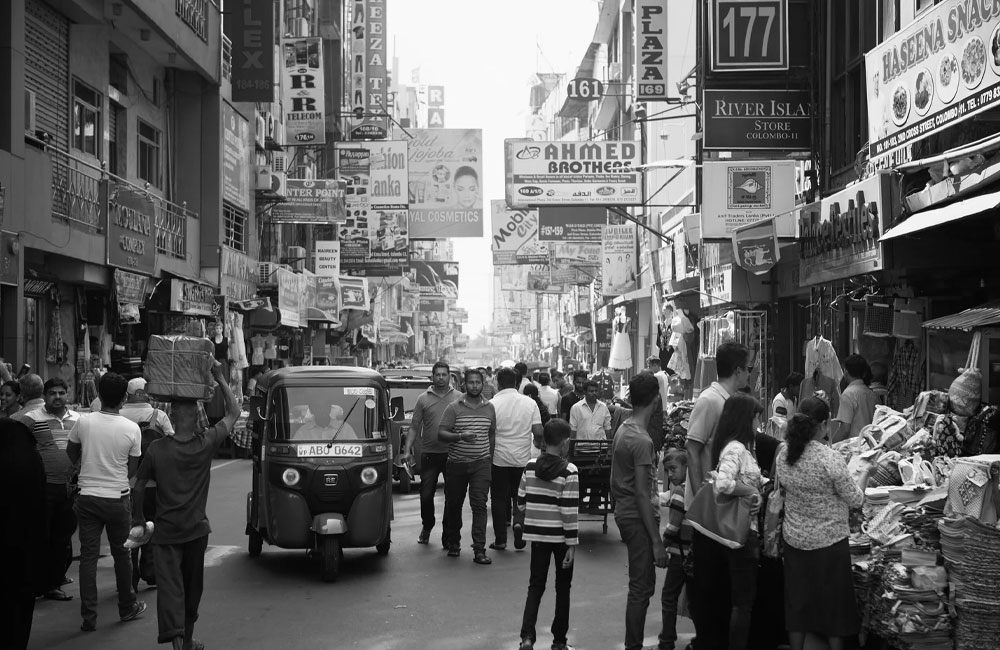
Lack of Consultation Hampers MSME Recovery after Cyclone Ditwah
The aftermath of Cyclone Ditwah has laid bare the fragile foundations of Sri Lanka’s MSME recovery framework, raising serious questions about the government’s approach to disaster management in the industrial sector. While swift announcements were made to register affected enterprises and offer limited financial assistance, the absence of expert consultancy and consistent stakeholder engagement has created new challenges for already struggling businesses.
MSMEs form the backbone of regional economies, particularly in rural and semi-urban districts where alternative employment opportunities are scarce. According to industry estimates, nearly one in three MSMEs in cyclone-affected areas has experienced operational paralysis, either due to destroyed infrastructure, damaged machinery, or disrupted supply chains. Yet, policy responses have largely been designed at the central level, with minimal input from ground-level practitioners.
The SMEs Association has urged authorities to extend the industry registration deadline to January 16, 2026, citing delays in official assessments. District-level administrators themselves have acknowledged that data is still being compiled, underscoring disconnect between policy deadlines and administrative realities. Despite this, the original timeline was allowed to lapse, excluding many genuine claimants from relief eligibility.
Furthermore, the uniform compensation model adopted by the government has drawn criticism for ignoring sectoral diversity. A micro-enterprise employing five workers faces vastly different recovery costs compared to a medium-scale manufacturing plant employing 50 people. However, both are offered the same Rs. 200,000 assistance, a figure that fails to address even short-term working capital needs.
Industry analysts argue that this policy misalignment stems from the lack of structured consultations with economists, disaster management specialists, and MSME development professionals. Countries that have successfully navigated post-disaster industrial recovery—such as Bangladesh and the Philippines have relied on public-private task forces and phased recovery plans tailored to enterprise size and sector.
Without concessional financing, insurance-backed recovery mechanisms, and infrastructure rehabilitation support, the MSME sector risks prolonged stagnation. Calls are growing for interest-subsidized loan schemes, technology replacement grants, and coordinated rebuilding programs aligned with regional development priorities.
Cyclone Ditwah should have been a catalyst for reforming MSME disaster-response policy. Instead, it has highlighted systemic weaknesses in governance, consultation, and execution. Unless these gaps are urgently addressed, the long-term cost to employment, exports, and local entrepreneurship may far exceed the immediate damage caused by the storm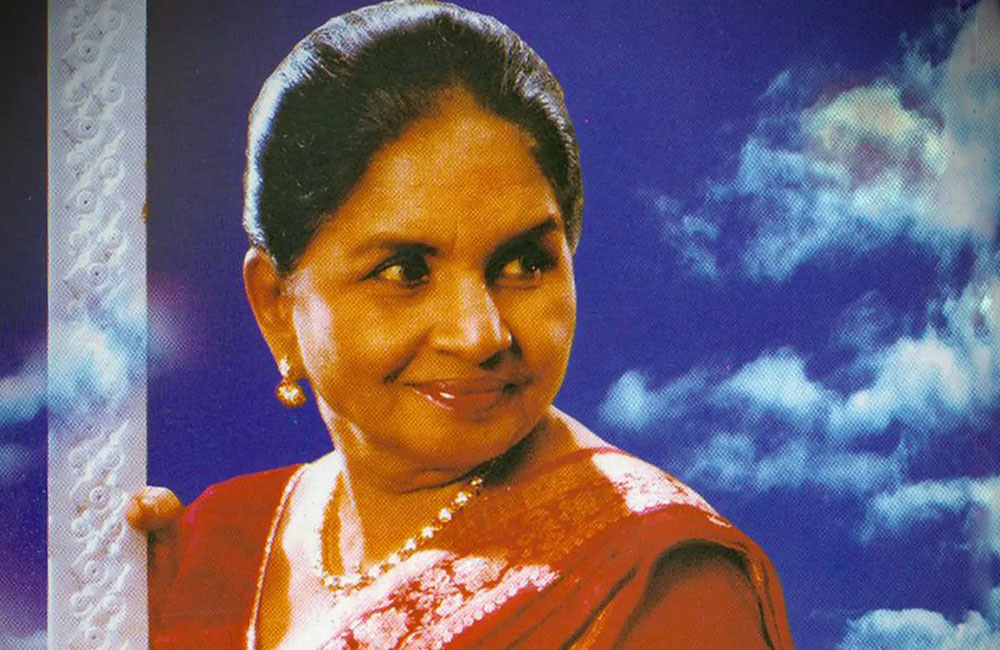
Final Rites of Veteran Singer Latha Walpola to be held on Dec 31 with Full State Sponsorship
The final rites of veteran singer Latha Walpola will be performed on the 31st of December at the Independence Square in Colombo, with full state sponsorship.
The Ministry of Public Administration said a special discussion on funeral arrangements is scheduled to be held this evening.
The remains of the late singer will be placed at a private funeral parlour in Borella from 3.00 p.m. today, allowing the public to pay their final respects.
Latha Walpola, fondly remembered as one of the most iconic voices in Sri Lankan music, passed away last night while receiving treatment at the Sri Jayewardenepura Hospital.
She was 91 years old at the time of her demise and leaves behind a legacy of golden memories that shaped generations of Sri Lankan music lovers.
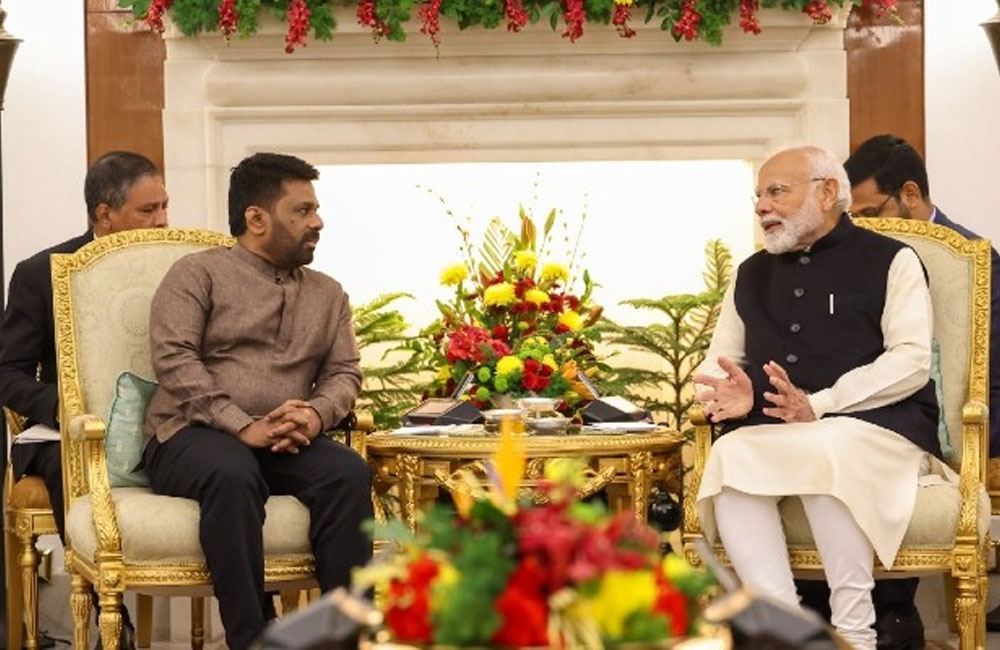
Transparency Key if Joint Mechanism for India Aid Is Confirmed
Recent newspaper reports have drawn attention to a proposed joint official committee involving Sri Lankan and Indian officials that is reportedly intended to oversee India’s US$450 million post-disaster reconstruction assistance to Sri Lanka. While these reports have generated significant public interest, the precise details and official confirmation of such a mechanism have yet to be formally disclosed to Parliament or communicated to the public.
According to print media accounts citing senior government sources, the reported joint committee would be responsible for determining reconstruction priorities, managing procurement under Indian concessional credit lines, and coordinating the deployment of Indian technical manpower.
The assistance package is said to cover key sectors including road and railway infrastructure, housing, health, education, agriculture, and the possible establishment of an Immediate Disaster Response Team.
However, at the time of writing, no official statement has been issued outlining the committee’s mandate, composition, legal basis, or reporting structure. Nor has Parliament been formally briefed on the operational framework under which such a committee would function, raising questions about transparency and oversight should the reported arrangement materialise.
The reported aid package comprises US$350 million in concessional lines of credit and US$100 million in grants. Its announcement was conveyed during a recent visit by India’s External Affairs Minister S. Jaishankar, who arrived in Sri Lanka as a special envoy of Indian Prime Minister Narendra Modi and met with President Anura Kumara Dissanayake and other political leaders. While the assistance itself has been publicly acknowledged, the governance mechanisms for administering it remain unclear.
Media reports further suggest that the Indian High Commission would play a coordinating role in facilitating meetings and monitoring project progress, with Indian technical teams potentially assisting in sectors such as housing, railways, healthcare, and education. These claims, however, remain unverified through official channels.
The absence of confirmed information is notable, particularly given India’s own emphasis on parliamentary oversight in managing domestic and overseas credit lines. In India, sectoral oversight committees routinely review infrastructure projects, financial schemes, and public sector undertakings to ensure accountability and efficiency. Observers note that similar clarity would be essential in Sri Lanka if a joint mechanism is indeed established.
Until formal confirmation is provided, the reported joint committee remains a matter of public speculation rather than established policy. Nonetheless, the issue underscores the importance of timely disclosure, parliamentary engagement, and public communication when large-scale foreign-funded reconstruction initiatives are contemplated. In the absence of such transparency, even well-intentioned assistance risks becoming a subject of uncertainty and debate.

Regional Economies Grow, Western Reliance Remains a Risk Factor
Sri Lanka’s regional economic landscape showed modest signs of diversification in 2024, yet analysts caution that the country remains overly dependent on the Western Province, leaving national growth vulnerable to regional shocks. Provisional GDP estimates indicate that while the Western Province retained its position as the country’s economic powerhouse, its share of national output declined marginally to 42.4% from 44% in 2023. This shift reflects gradual growth in other provinces, but not enough to fundamentally rebalance the economy.
The North Western and Central provinces increased their shares to 11.5% and 10.7% respectively, supported largely by agriculture, food processing, and limited industrial expansion. These gains suggest incremental progress toward regional diversification, yet economists argue they fall short of what is required to reduce systemic risk. Nearly half of Sri Lanka’s industrial output and more than 44% of its services sector remain concentrated in the Western Province, underscoring a structural imbalance that has persisted for decades.
This concentration exposes the national economy to outsized risks. Any major disruption—such as extreme weather events, power shortages, labor unrest, or transport bottlenecks—within the Western Province could have ripple effects across the country. Past experiences with flooding and energy crises have already demonstrated how quickly growth momentum can stall when the Western region is affected.
Agriculture continues to be dominated by the North Western Province, reinforcing regional specialization but also highlighting weak linkages between agricultural regions and higher-value industrial and service activities. Southern and Uva provinces recorded modest GDP growth in 2024, yet their limited participation in manufacturing, logistics, and modern services points to significant untapped potential. Without stronger investment pipelines and infrastructure connectivity, these regions risk remaining peripheral contributors to national growth.
At the macro level, nominal GDP expanded to Rs. 29.9 trillion, reflecting resilience amid ongoing fiscal and debt restructuring challenges. However, economists warn that headline growth masks uneven provincial performance. Employment generation, income growth, and private investment remain skewed toward the Western Province, contributing to persistent regional income disparities.
Analysts also note methodological limitations in the Central Bank’s regional GDP estimates. The top-down disaggregation approach provides a useful snapshot, but it may understate informal sector activity, particularly in rural and estate-based economies. As a result, actual economic contributions from non-Western provinces could be higher than reported, though still constrained by structural bottlenecks.
Looking ahead to 2026, policymakers face a delicate balancing act: sustaining growth in the Western Province while accelerating diversification elsewhere. Targeted regional investment incentives, improved transport and digital infrastructure, decentralized industrial zones, and skill-development programs tailored to provincial labor markets are widely seen as critical. Failure to address these imbalances risks entrenching Western-centric growth, exacerbating inequality and limiting Sri Lanka’s long-term economic resilience even as overall GDP continues to rise.
Page 25 of 663